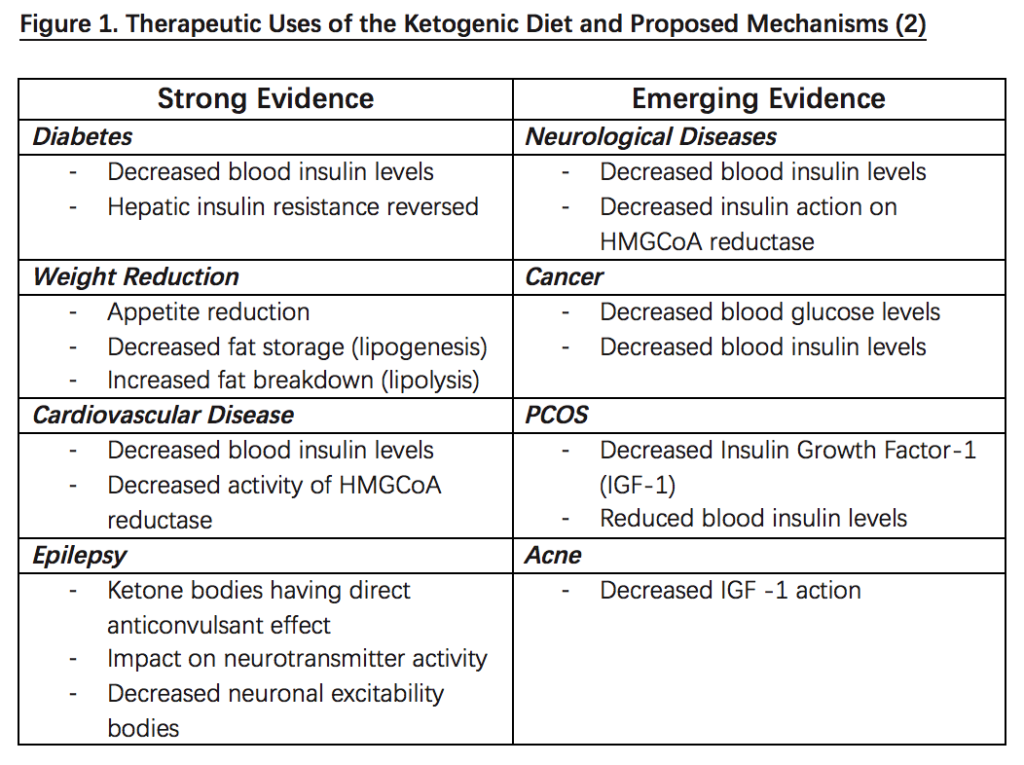Ketogenic Diet Explained – What is it and who is it for? (Part 1)
Written by Colleen Rempel, BSc (Human Nutritional Sciences)
Certified Holistic Nutritionist, CHN
PN Lean Eating Coach
What on earth is the ketogenic diet anyway?
To keep it simple, the ketogenic diet (KD) is an extremely low carbohydrate, moderate protein, and high-fat diet that shifts your body into using an alternative source of energy (1). Instead of relying mainly on glucose, the body utilizes fat and ketones for energy (1). Since the central nervous system can’t use fat for energy, the body converts fatty acids into ketone bodies for energy (2). In order for the body to shift into this mode called “ketosis”, an individual must consume below 30-50g of net carbohydrates per day (2). Once all of the stored carbohydrates (glycogen) from the muscles and liver have been used up, the body shifts into ketosis. This generally takes 3-4 days from the initiation of the diet, but the timeframe can vary from person to person (2). While the body shifts into ketosis, many people experience flu-like symptoms such as headaches, nausea, and fatigue (3).

Why was KD first developed?
This diet was first developed when doctors noticed the benefits of fasting for children with epilepsy (4). Interestingly, their seizures would eventually stop when they fasted and he questioned if there was a way to get the benefits of fasting without actually fasting? The ketogenic diet was developed to treat these patients and is still used for children with epilepsy who don’t respond to anti-seizure drugs (5). More recently, the ketogenic diet has been investigated for its beneficial effects on a variety of health conditions such as obesity, diabetes, cancer, polycystic ovarian syndrome (PCOS) & acne (2).
Why consider the KD as nutritional therapy?
What if nutritional interventions could reduce the cost and side effects of using pharmaceutical drugs for the treatment of chronic diseases such as type 2 diabetes, obesity or cardiovascular disease? According to the World Health Organization, the US currently spends $750 billion dollars annually on pharmaceuticals (6). Aside from economic benefits, there are certain chronic health conditions, such as Alzheimer’s disease (AD), which still do not have definitive treatments available. In fact, in clinical trials of over 100 drug treatments, all have been found to be ineffective in slowing AD progression (7). There is an urgent need for new and effective therapies for several chronic illnesses, and the ketogenic diet may be one of these therapies.

The European Journal of Clinical Nutrition published a review of the research of the ketogenic diet and found there is substantial evidence to support the benefits of using it as a therapeutic diet for individuals who have epilepsy, type 2 diabetes, excess weight, and cardiovascular disease (2). Emerging evidence is showing it also may also benefit individuals with neurological disorders, cancer, Polycystic Ovarian Syndrome (PCOS) and acne (2). If you or a loved one has any of the above conditions and has not responded to conventional treatment, considering nutritional therapy may be a good option.
Below is a summary of some of the proposed mechanisms that are thought to evoke these benefits:
Figure 1. Therapeutic Uses of the Ketogenic Diet and Proposed Mechanisms (2)

How long can you follow a ketogenic diet?
Since this is an emerging area of research, there is currently no recommendation for the duration of following the ketogenic diet. As long as you are being monitored by a healthcare professional, studies in the review by Paoli and colleagues (2013) found that the benefits of following KD for 3-12 months seemed to be safe (2). That being said, the individuals in the longer studies were closely monitored by health professionals and were regularly checked for any adverse effects of the diet. This is especially important for individuals with type 2 diabetes, as they often needed less of their glucose-lowering medications the longer they were on the KD (2). Staying on glucose-lowering medications when you no longer need them can cause hypoglycemia and be extremely dangerous.

Is the ketogenic diet for everyone?
There is no such thing as a one size fits all therapeutic nutrition protocol. It is always advised to speak with a qualified nutrition professional before beginning a strict nutrition program. There are certain individuals who may not be a good fit for the ketogenic diet, including those who are pregnant or lactating, those with a history of pancreatitis, kidney failure, kidney stones, impaired liver function, poor nutritional status, abdominal tumors, gastric bypass surgery and decreased gastrointestinal motility (3, 8)
Interested in more specific details on what the research shows are the benefits of following the Ketogenic diet for individuals with Type 2 diabetes, cardiovascular disease, neurological conditions, excess weight and more? We will cover all of that in part 2 of this blog series next week, so stay tuned!
References:
- Gupta, L., Khandelwal, D., Kalra, S., Gupta, P., Dutta, D., & Aggarwal, S. (2017). Ketogenic diet in endocrine disorders: Current perspectives. Journal of Postgraduate Medicine,63(4), 242-251.
- Paoli, A., Rubini, A., Volek, J. S., & Grimaldi, K. A. (2013). Beyond weight loss: a review of the therapeutic uses of very-low-carbohydrate (ketogenic) diets.European journal of clinical nutrition, 67(8), 789.
- Dhamija, R., Eckert, S., & Wirrell, E. (2013). Ketogenic Diet. Canadian Journal Of Neurological Sciences,40(2), 158-167.
- Kessler SK, Neal EG, Camfield CS, Kossoff EH. Dietary therapies for epilepsy: future research. Epilepsy Behav 2011; 22: 17–22.
- Li, H., Zou, Y., & Ding, G. (2013). Therapeutic Success of the Ketogenic Diet as a Treatment Option for Epilepsy: A Meta-analysis. Iranian Journal Of Pediatrics,23(6), 613-620.
- Medicines: Corruption and Pharmaceuticals. WHO Fact SheetWHO, 2009.
- Wu, S., Cao, Z., Chang, K. & Juang, J. (2017). Intestinal microbial dysbiosis aggravates the progression of alzheimer’s disease in drosophila. Nature Communications, 8(1) doi:10.1038/s41467-017-00040-6
- https://www.ketogenic-diet-resource.com/support-files/who-should-not-follow-a-ketogenic-diet.pdf
